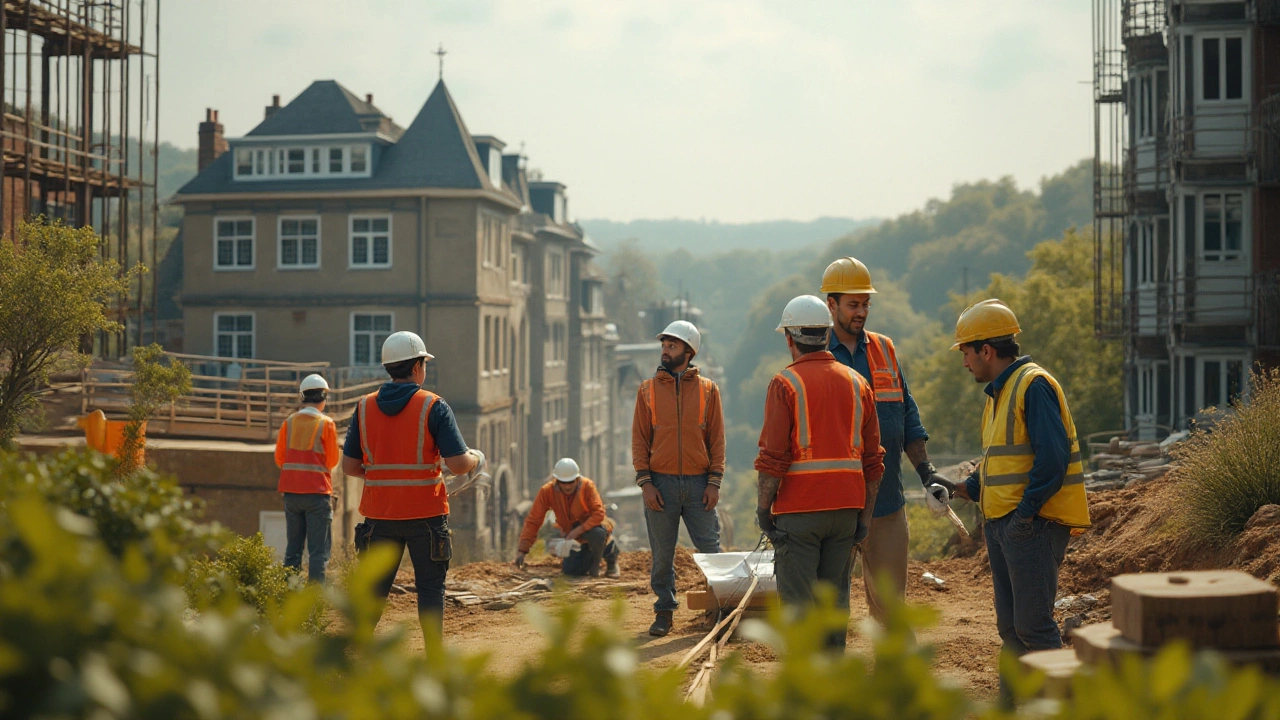Building Contractors: What They Do and How to Pick the Right One
If you’ve ever wondered who actually puts together a house, office, or garage, the answer is a building contractor. They’re the folks who manage the whole construction process – from getting permits to coordinating trades, ordering materials, and making sure the site stays safe. In other words, they’re the point person who turns a blueprint into a solid structure.
Most people think a contractor is just someone who swings a hammer, but the role is far broader. A qualified building contractor holds the necessary licences, insurance, and often a network of subcontractors. They keep the budget on track, schedule work so you’re not waiting weeks for a paint crew, and handle any hiccups that pop up, like unexpected ground conditions or supply delays.
Key Responsibilities of a Building Contractor
1. Project Planning – They break down the design into a step‑by‑step plan, set milestones, and order the right materials at the right time.
2. Regulatory Compliance – Permits, inspections, and building codes can be a maze. A good contractor knows what paperwork is needed and when to schedule inspections.
3. Team Coordination – From electricians to roofers, the contractor hires and supervises tradespeople, making sure everyone knows where they should be each day.
4. Quality Control – They check work as it progresses, catch mistakes early, and ensure the finish meets the agreed standards.
5. Safety Management – On‑site safety isn’t optional. Contractors enforce protective gear, safe scaffolding, and proper storage of hazardous materials.
How to Choose the Right Contractor for Your Project
Start with a short list of local firms that specialise in the type of build you need – residential, commercial, or industrial. Ask for references and actually call them; a quick chat can reveal how responsive they are. Verify their licence numbers and insurance certificates; never rely on a verbal promise.
When you get quotes, look beyond the bottom line. A very low price can hide hidden costs, like extra change‑order fees or lower‑grade materials. Ask each contractor to break down labour, materials, and any contingency amounts. This transparency helps you compare apples to apples.
Trust your gut on communication. If a contractor answers emails within a few hours, explains terms in plain language, and shows up on time for site visits, they’re likely to keep you in the loop throughout the build. Good communication reduces misunderstandings and keeps the project moving.
Finally, check reviews on independent platforms and see if they’ve handled projects similar to yours. A contractor who’s built several garage doors for homeowners in the UK, for example, will understand the specific challenges of fitting doors with tight clearances or special security requirements.
Choosing the right building contractor isn’t just about price – it’s about reliability, expertise, and clear communication. With the right partner, your project stays on schedule, stays within budget, and ends up looking exactly how you imagined.
Ready to start? Grab a shortlist, verify licences, and schedule a site visit. The right contractor will make the whole process feel less like a hassle and more like a smooth ride to your finished building.

Why is a Builder Called a Contractor? Unpacking the Term
Apr 1, 2025, Posted by Damon Blackwood
Ever wondered why builders are often referred to as contractors? It all boils down to the nature of their work, which involves contracts with clients. This article delves into the reasons behind the terminology, where it originated, and the roles and responsibilities that define a builder as a contractor. By understanding the contract-based foundation of their work, you'll gain a clearer perspective on how these terms play out in the construction industry. Dive in to learn the nitty-gritty of construction world language.
MORE
Average Profit Margin in Construction: What You Need to Know
Mar 20, 2025, Posted by Damon Blackwood
Profit margins in the construction industry can be tricky to navigate. On average, these margins range from 5% to 10%, depending largely on the project's nature and management efficiency. Various factors like material costs, labor, and unforeseen expenses affect how much contractors take home. With smart planning and execution, contractors can boost their profits significantly. Understanding these dynamics is crucial for anyone in the construction business.
MORE
Understanding the Role of Building Contractors in Home Construction
Jan 31, 2025, Posted by Damon Blackwood
Hiring contractors is a crucial step in ensuring successful building projects, especially in home construction. Contractors bring specialized skills, coordination expertise, and manage legal obligations, making them essential for both residential and commercial projects. Knowing the various services they offer can help you make informed decisions for your construction needs. This article explores reasons for hiring contractors, explaining their value, services, and offering tips for choosing the right one.
MORESEARCH HERE
Categories
TAGS
- foundation repair
- commercial construction
- construction
- new builds
- home improvement
- home renovation
- bathroom renovation
- construction materials
- residential construction
- building codes
- home foundation
- building types
- renovation tips
- building materials
- construction differences
- contractor
- foundation cracks
- home construction
- architectural services
- foundation issues